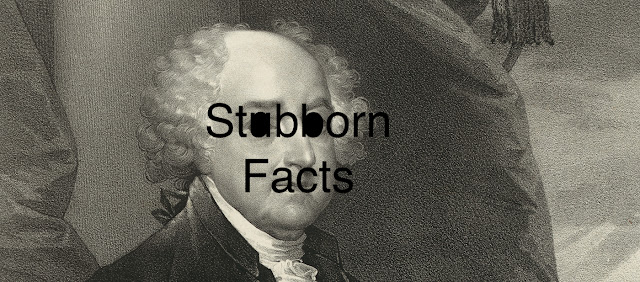Why the Gun Debate is Difficult
As I tried to understand what was happening with the arguments around gun control, I wrote some ideas in a quick manner. I wanted to work out how I could responsibility help students work with arguments; in other words - to improve my and other teachers' practice in order to training the next democratic players. Especially since many of the teenage students speaking out are thrown off as too young to know anything "about policy," I wanted to also show how many "adult" arguments are problematic. So, this analysis is tentative but hopefully productive: please help refine, clarify, or refute my thoughts. I also added links to sources that I have seen shared by friends and colleagues. If you share something, I will read it; but please, read and consider the wealth of information that I share as well.
My frustration with arguments, especially on social media- which creates an environment to spray quick arguments with unlimited ethos which is then reaffirmed by your bubble buddies - are arguments where people think words seamlessly represent truth or express the "clear" representations in their heads with fidelity.
The other frustration with the expressions people make is that these expressers already understand the arguments that already "exist"; but this stems from the assumption that reality exists in the way that you already assume (which I will discuss - and try to analyze constituent parts to a get clear understanding of the current gun and mass shooting debate).
Causality and Necessity: We all assume we understand how the world works at the most fundamental level: cause and effect, people have free will, people cause things to happen in the same way in all situations - i.e. we are all experts in modal logic and modal ontology (possible worlds analysis)!?
"People kill people, guns don't kill people." Objects have different functions and causal properties. Cars are heavy, metal objects that kill many people. Ban cars? Terrorist use cars/trucks to kill people, right? If you want to kill someone, you will find a way... So we are also experts in psychology and know people are caused by psychological determinism? The confidence or bias bias are probably at play here; but let us unpack these concepts:
- If there were no guns, the world would be a very different place. If a mass shooter did not have access to an assault rifle, and that was the only thing that you change about the possibility of a different past - yes, would the future NOT be different now? You can drive a truck through a crowded street. You can’t drive a truck through a school - a least with the same effect. Empirics also show this: violence and mass attacks with other weapons (in schools) - fatality rate was always close to 0.
- Mental illness. Mental illness can “cause” someone to do bad things; BUT, normal, god-fearing people also do very bad things. It is not a truth that mental illness is the cause of, especially, mass shootings. Mental reality and illness are both a social and contextual reality. Modal analysis: a mass shooting is contingent on family, society, access to guns, ideological influence: it is logically possible that the same individual brought up as a Nazi in one reality and not in the other, would NOT commit a mass shooting even with the assumption of a mental illness - or that the person was “ill” no matter what (this is both a modal question and an empirical question - and I think the empirical evidence is robust on this point - historically and scientifically). What, then, can a society control? So the question, to me, becomes: Can we create a wider system of regulating, measuring, judging people’s minds - or; deal with physical objects, like guns. ( I am putting aside that “not all guns are equal” argument - banning and possibly buying back assault weapons and more is a reasonable start. In this text, however, I am just trying to get clear why debating about guns is difficult and misguided).
Confirmation Bias: the research is clear - confirmation bias and moral intuition are some the most powerful drivers of the formation and evolution of belief states. Other complexities with the “intentional stance” and the "belief in belief" have some fundamental issues with this (D. Dennett); however, my question is always around the ability of people (and students in my practice) to know when to accept or reject new information, evidence, or arguments without the influence of confirmation bias (and why that matters or not).
- The question of gun rights/violations seems to fundamentally trigger - yes - trigger everyone’s confirmation bias since it strikes at the heart of one’s ontology and value system (see J. Haidt). In the U.S., the 2nd Amendment, perhaps, has triggered this even more since it functions as a de facto and prima facie natural right. This, then, shapes the ontology of causality argued above.
- https://www.npr.org/2018/02/24/588069946/millennials-are-no-more-liberal-on-gun-control-than-elders-polls-show
- The social scientific empirical evidence is very robust on the effect gun control can have on violence. So why are Americans resistant to the point that regulation will not work in the US...because there are too many guns, different culture...? Because another counties do not have a constitutional right to bear arms. Is that the fundamental reason?
- Therefore, it seems we need a robust culture shift about guns and we need to rethink the 2nd Amendment. I would just get rid of it in my ideal world- but…that is not legally the right start. The SCOTUS will rethink precedent as the country shifts and law shifts. It is our constitutional heritage to find restrictions and non-restrictions to any “civil right.” In the end, this confirmation bias/polarization in our society will be difficult to go away. Though M. Lynch has shown that a "space of reasons" can shift a value system - he uses the example of gay rights. But again, this was a different constitutional issue.
These definition avoids talk of realism; a fact must still be verified within the framework you agree to be in. Brute facts do exist: like there is a metal object in a certain location in space/time. However, the “stop sign” in J. Searle’s language, is also a fact: it is a social fact. So talk of "facts" in this debate is usually counterproductive. We need social scientific empirical evidence with a robust democratic and expert community.
- Experts: “teenagers are not constitutional experts, and not mature - why listen to them about policy matters?” How many constitutional experts are there? Are you a constitutional expert? Teenagers have studied the constitution more recently than most adults have. This also begs the "information/knowledge coordination problem:” do you have be an expert to know which experts to trust? Moreover, if this was ONLY a constitutional matter, then why make any other non-constitutional arguments?
- Epistemic Privilege: Emotional and experiential formation of beliefs = knowledge. To exclude this from meaningful argumentation of new data is ignorant of how knowledge formation works. If you ignore and exclude a teenager’s argument or traumatic experience, your perspective needs to be excluded - right? You are actually making a Hamiltonian argument - stupid, uneducated, poor, rural people should not vote or have a say in the matter.
- Research on this in the multicultural education literature is extensive. The ability to not privilege your own perspective is powerful, but difficult. This kind of trust requires compassion, patience - of course, the ability of other-mindedness. A deeper understanding of the Other Minds Problem could help everyone. SO, Those that are oppressed are uniquely knowledgable about oppression. If you are ,to use the same word, in a status of privilege, then what gives you the epistemic superiority? This also stems from the deep historical paradigm of "Reason over Emotion"...SO we should listen to these teenagers.
- Arming teachers. I will not do it. I am not alone. Who will do it? Would it work if even a few teachers had guns? 20%? No. There is no evidence that it would deter shooters. How would a armed teacher stop a shooter with a plan and a better weapon. What about cross-fire? Is the teacher now responsible to take fire and then die? This will not work. I will quit. Leave the country. Moreover, this increases guns and the violent mind-set and will perpetuate ontological violence, discrimination (there could be a whole case study on the racial and discriminatory effects of a teacher-gun-arming policy). Moreover, empirical evidence - that we have about gun deterrence - shows that more guns increase violence. https://www.scientificamerican.com/article/more-guns-do-not-stop-more-crimes-evidence-shows/. QED - this is stupid.


Comments
Post a Comment